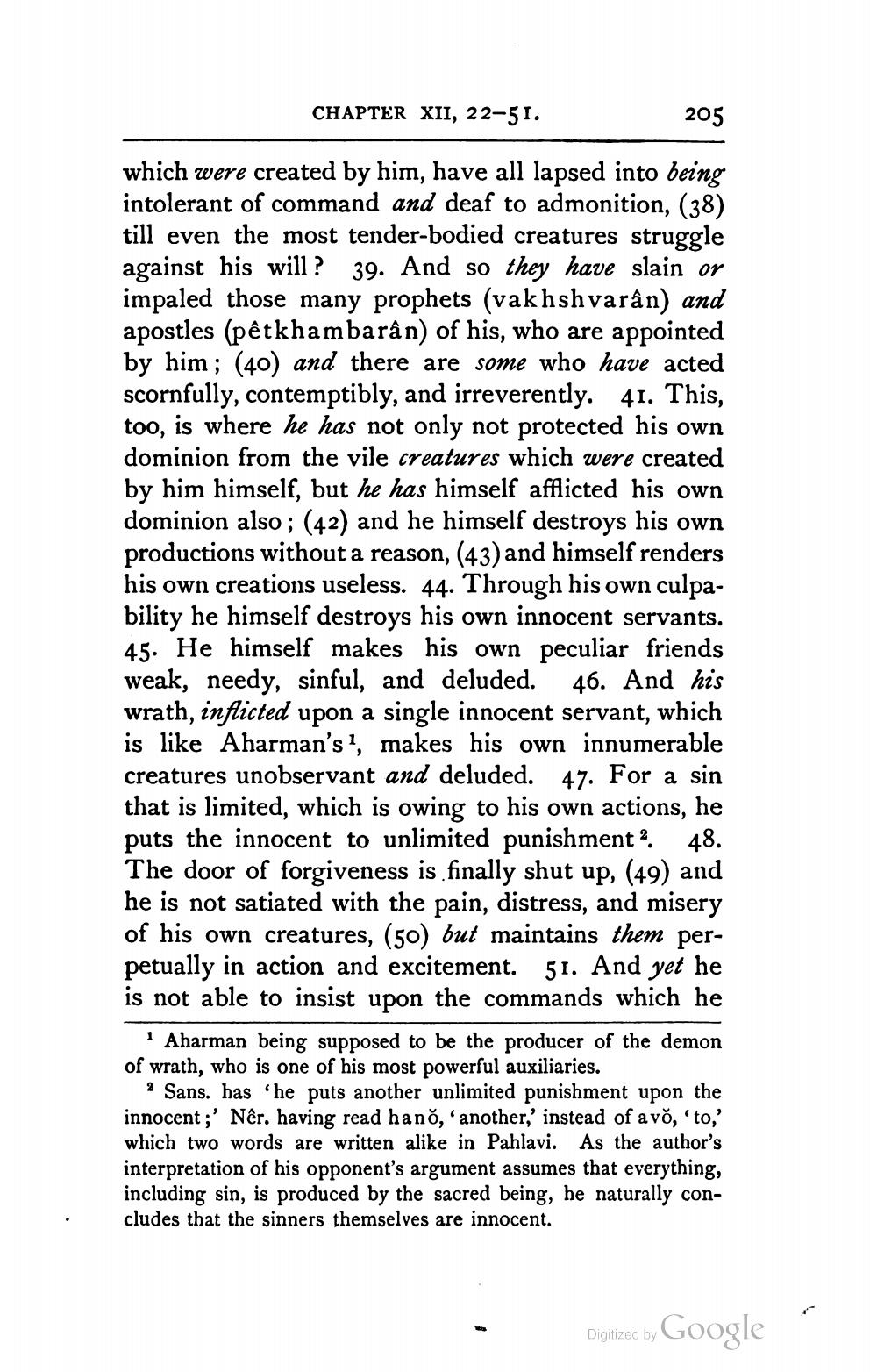________________
CHAPTER XII, 22-51.
205
which were created by him, have all lapsed into being intolerant of command and deaf to admonition, (38) till even the most tender-bodied creatures struggle against his will ? 39. And so they have slain or impaled those many prophets (vakhshvarân) and apostles (pêtkhambarân) of his, who are appointed by him; (40) and there are some who have acted scornfully, contemptibly, and irreverently. 41. This, too, is where he has not only not protected his own dominion from the vile creatures which were created by him himself, but he has himself afflicted his own dominion also; (42) and he himself destroys his own productions without a reason, (43) and himself renders his own creations useless. 44. Through his own culpability he himself destroys his own innocent servants. 45. He himself makes his own peculiar friends weak, needy, sinful, and deluded. 46. And his wrath, inflicted upon a single innocent servant, which is like Aharman's?, makes his own innumerable creatures unobservant and deluded. 47. For a sin that is limited, which is owing to his own actions, he puts the innocent to unlimited punishment ? 48. The door of forgiveness is finally shut up, (49) and he is not satiated with the pain, distress, and misery of his own creatures, (50) but maintains them perpetually in action and excitement. 51. And yet he is not able to insist upon the commands which he
* Aharman being supposed to be the producer of the demon of wrath, who is one of his most powerful auxiliaries.
* Sans. has 'he puts another unlimited punishment upon the innocent;' Nêr. having read hano, another,' instead of avo, 'to,' which two words are written alike in Pahlavi. As the author's interpretation of his opponent's argument assumes that everything, including sin, is produced by the sacred being, he naturally concludes that the sinners themselves are innocent.
Digitized by Google




